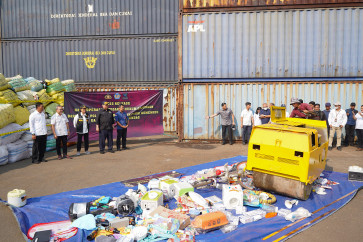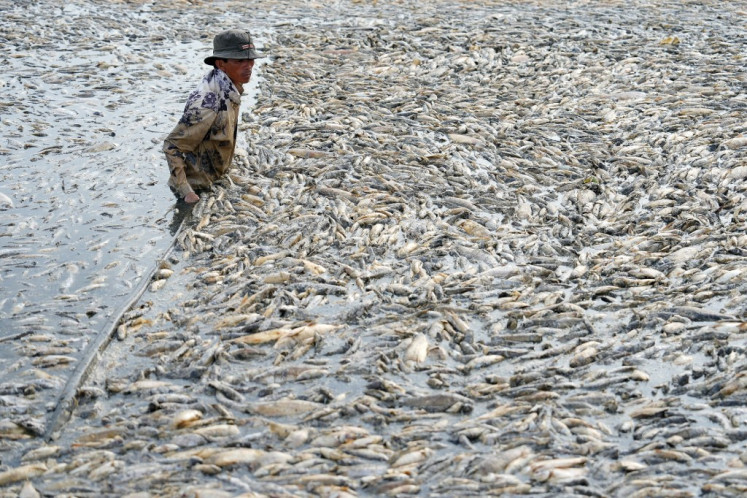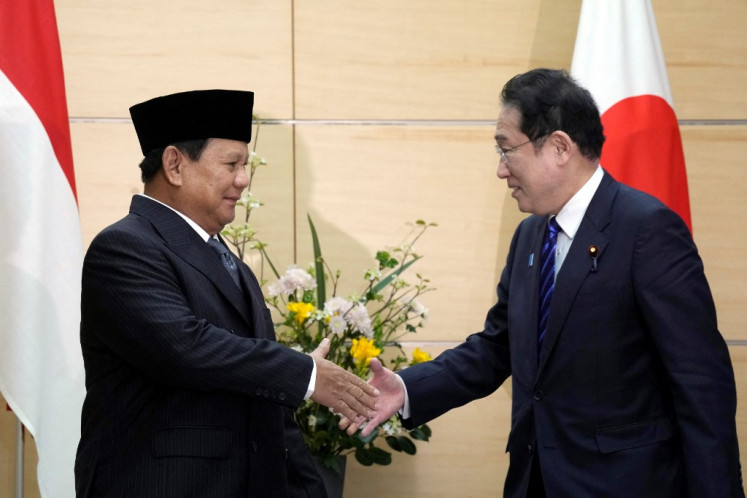Telkom vs Netflix and the network neutrality debate
The ability to block the internet no longer resides only with the government, but also the private sector, as shown in the decision of PT Telekomunikasi Indonesia (Telkom) to ban Netflix
Change Size

T
he ability to block the internet no longer resides only with the government, but also the private sector, as shown in the decision of PT Telekomunikasi Indonesia (Telkom) to ban Netflix.
These days, internet service providers (ISPs) have more control in determining which content is allowed to pass the internet connections that they manage.
The absence of awareness, monitoring and appropriate action from the Indonesian government, together with the public, regarding ISPs power to block websites may constitute a breach of the network (net) neutrality principle.
In a worst case scenario, it may hinder the growth of start-up industries and the digital economy in Indonesia.
In the early days of its existence, US-based Netflix triggered controversy, especially among ISPs. Comcast, Verizon and AT&T demanded that Netflix pay certain fees in order to reach their customers. The case inspired the Federal Communications Commission (FCC) to form the FCC's Open Internet rules in 2015, which regulate the net neutrality principle.
In its simplest definition, net neutrality means that all traffic on the internet should be treated equally (with reasonable and justified network management, if necessary).
The open internet rules, in brief, stipulate three main principles of network neutrality, namely: 'No blocking, no throttling, no paid prioritization.'
No blocking means ISPs cannot block access to lawful content, applications, services or undamaging devices. The no throttling principle prohibits ISPs from degrading access to lawful content, applications, services or undamaging devices, even if they go against an ISPs' business interests.
The third principle says ISPs cannot request payment for any content, applications, services or devices to get internet fast lanes.
Telkom said it blocked Netflix because the latter failed to conform to Indonesian regulations, particularly Law No.33/2009 on film, saying that Netflix contained pornographic content.
This reasoning assumes that Telkom's actions were sensible and legitimate.
However, according to Ministerial Regulation No. 19/2014 on the handling of sites with negative content and echoing the explanation of Donny BU, executive director of ICT Watch, the blocking can be executed by blocking service providers or ISPs after the websites are listed in TRUST+, the database of websites with negative content managed by the Communications and Information Ministry.
In other words, the blocking is unnecessary in the first place. Accordingly, this case indicates the power and capability of ISPs to decide what may or may not pass through their network.
If such powers remain unchecked, there are at least four possible negative outcomes.
First, the diffusion of digital innovation coming from new players is stifled by ISPs through their network management.
Second, this means ISPs could strengthen their business position, especially those who also provide other services, for example, digital and internet-based TV. It may thus create market concentration in the hands of existing businesses.
Third, in the absence of competition that is useful to push for improvements of service and product quality, customers may receive poorer services and products.
Lastly, the overarching impact is that it may jeopardize the growth of the digital economy in Indonesia.
Safeguarding Netflix from Telkom's block would be a milestone for establishing a business environment that promotes and supports future local digital innovations.
This Netflix case hopefully raises Indonesia's awareness of the net neutrality issue and the potential reemergence of this issue in the future.
This will thus require the Indonesian government and other internet-related stakeholders to develop and nurture a supportive business climate. This can be done by developing and enforcing internet-related regulations that promote innovation and competition.
We should be cautious about implementing a misguided policy that would harm Indonesia as a whole.
Furthermore, this issue also shows that any resolution related to the internet cannot be left to one single group.
Instead, we need to consider a multi stakeholder approach before deciding on an internet-related policy. Indonesia hosted the Internet Governance Forum (IGF) in 2013 in Bali, which was widely recognized as one of the best IGF ever.
Moreover, in preparation for the global IGF, the active Indonesian internet governance stakeholders set up the Indonesian IGF, which is held annually.
This forum can serve as a platform to raise and discuss internet-related issues facing the government, private sector and the wider public.
____________________________________
The writer is a research partner of ICT Watch, Indonesia, now pursuing a PhD at Wee Kim Wee School of Communication and Information (WKWSCI), Nanyang Technological University (NTU), Singapore. Prof. Peng Hwa Ang of WKWSCI also provided input for this article.









